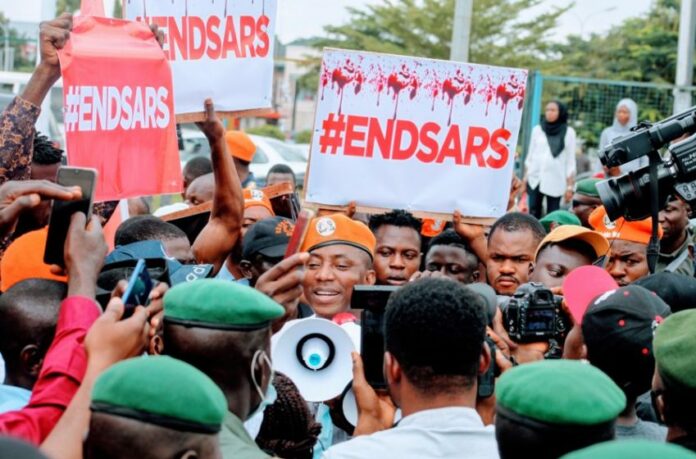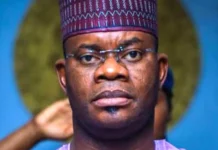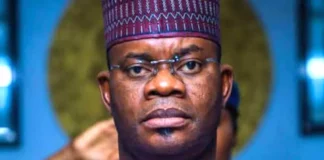Three years ago in 2020, Nigeria witnessed a groundbreaking, youth-driven uprising known as #EndSarz, aimed at combating the long-standing issue of police brutality by the Special Anti-Robbery Squad (SARS), a notorious and lethal unit within the Nigeria Police Force. Despite being entrusted with the vital duty of safeguarding the lives and property of Nigerians, the police often fell short of these expectations, sometimes even contributing to the problem, which fueled the groundswell of protest.
What started as a means to express our grievances about the unjust treatment and brutality inflicted by the Sarz unit, particularly on young Nigerian men who were unfairly targeted due to their perceived wealth, dreadlocks, iPhones, and cars, quickly transformed into a powerful outcry. The persistent targeting, harassment, and, tragically, unjust killings of these individuals ignited the #EndSARS movement, which ultimately evolved into a demand for improved governance and the dismantling of the SARS group to ensure fair treatment of citizens by the police force.
In pursuit of a better Nigerian society, the Nigerian youth put forth five fundamental demands during the protests:
- The immediate release of all detained protesters.
- Justice for all victims of police brutality, along with fair compensation for their families.
- The establishment of an independent body to oversee the investigation and prosecution of all cases of police misconduct within a 10-day timeframe.
- Psychological evaluation and retraining (supervised by an independent body) of all disbanded SARS officers before any potential redeployment.
- Salary increases for police officers to ensure just compensation for their role in safeguarding the lives and property of citizens.
Despite these well-intentioned goals, the #EndSARS movement took a tragic turn when the protest unexpectedly escalated. The Nigerian Armed Forces were deployed to suppress the demonstrators at Lagos’ Lekki Toll Gate, resulting in soldiers opening fire, injuring, and tragically killing protesters.
An investigation conducted by the Lagos State Government revealed that at least 50 unarmed demonstrators were either killed, injured, or subjected to assault by security personnel. Although the army refuted these claims, chilling evidence depicted soldiers removing bodies and trucks arriving to eliminate evidence from the area.
Three Years After: Where Are We At?
Today marks exactly three years after the #EndSARS movement, and it’s disheartening to see that we’re still grappling with enduring police brutality, poor governance, and a worsening economic situation. It makes one wonder if all the efforts were in vain. A human rights group, the Youth Rights Campaign (YRC), has strongly criticized the continued occurrence of police brutality cases in Nigeria, even after the nationwide protests in 2020.
Disturbing reports have emerged, revealing that at least fifteen protesters who were arrested during the #EndSARS protests in 2020 are still being detained, most of them without trial. They are held at the Kirikiri Medium Correctional Center and the Ikoyi Medium Security Correctional Centre in Lagos. Tragically, these individuals face various charges, including theft, arson, unlawful firearm possession, and even murder, as filed by Nigerian authorities. This has subjected them to ongoing torture and mistreatment.
On the occasion of the #EndSARS movement’s anniversary, Michelle Bachelet, the United Nations High Commissioner for Human Rights, called upon Nigerian authorities to address the root causes of the protests and ensure accountability for human rights violations. Despite commemorating the second anniversary of this revolutionary movement in modern Nigeria, it’s evident that we are still far from achieving what we demanded. Sadly, our situation has worsened in many respects, including police brutality, unlawful extortion of citizens, poor governance, economic decline, and continued disregard for human rights.
Tragically, over the past year alone, Amnesty International reported the unlawful killing of at least six individuals by law enforcement officers. This includes the case of Gafaru Buraimoh, a 31-year-old killed in Lagos on December 6, 2022, and Onyeka Ibe, killed in Delta State on April 5, 2023, for simply refusing to pay a N100 bribe. Just two weeks ago, on October 4, 2023, a devastating incident unfolded when a pregnant woman, her two children, and the driver of a commercial tricycle, locally known as ‘Keke,’ lost their lives in a tragic accident in Okota, Lagos state. The accident occurred after a policeman reportedly engaged in a dispute over the steering wheel with the driver of a Toyota Sienna space bus.
Another heart-wrenching incident that sparked outrage against police misconduct and brutality occurred on December 25, 2022, when a pregnant Lagos-based lawyer, Bolanle Raheem, was fatally shot by a rogue cop, Drambi Vandi, at the Ajah Roundabout in Lagos. Several months after the tragic incident, there was a glimmer of hope when, on October 9, 2023, a Lagos State High Court found the defendant guilty on one count of murder and sentenced the rogue cop to death by hanging.
Beyond these news reports, numerous cases of police brutality and misconduct have been reported, underscoring the distressing reality that there seems to be no end to these violations. These incidents, alongside the broader concerns about Nigerian governance, paint a bleak picture. The recent presidential and gubernatorial elections, marred by political thugs, serve as a stark reminder of the deeply rooted issues in our country. In the lead-up to the election, candidates went to great lengths to display acts of compassion, soliciting votes from unsuspecting citizens.
However, a few months down the line, it appears we’ve regressed to square one. The government seems to have returned to a state of inaction, remaining deaf to the grievances and suffering of the people. The state of governance in Nigeria is in a sorry state, and our economic situation is in shambles. With the exchange rate at 1,130 Naira to a dollar and the expected rise in fuel prices to over 700 Naira per liter in the coming weeks, the situation is aptly described by Chinua Achebe’s novel “Things Fall Apart.”
The outlook is grim, with sky-high inflation rates reported by Trading Economics, which accelerated to an over 18-year high of 26.7% in September 2023 from 25.8% in August 2023. It is anticipated to reach an all-time high of 28% by the end of this quarter. This inflation is attributed to the second-round effect of the removal of petrol subsidies and the devaluation of the Naira on both official and parallel markets. As a result, the prices of food have soared to an all-time high of 30.6% in September.
The Long Road to Change: Where Do We Go from Here?
Three years after the #EndSARS movement, it’s disheartening to see that we are still grappling with the same issues, and it appears that the situation has worsened. In the face of these mounting crises, the question is, what’s the path forward? How can we bring about the change we so desperately desire in Nigeria? Unfortunately, I don’t have a foolproof solution or answer, given the historical trajectory of the #EndSARS movement in the country. Similarly, as other challenges persist, the road to meaningful change remains elusive.
In the face of adversity, we must continue to amplify our voices, champion justice, and work collaboratively to bring about the transformation we desire. While we may not have all the answers, we possess the determination to forge a brighter future for Nigeria. With each step we take, we honor the memory of those who stood up for change during the #EndSARS movement, and we uphold the hope of a more just and prosperous nation. Let us remain vigilant, for it is through our collective efforts that we will ultimately triumph over the challenges that confront us.













